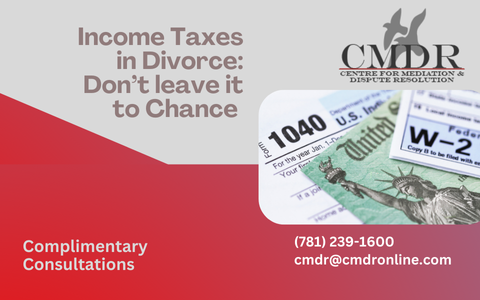 Everyone worries about taxes but nobody really likes to talk about taxes unless, of course, they are running for political office.
Everyone worries about taxes but nobody really likes to talk about taxes unless, of course, they are running for political office.
Yet, like it or not, those who are separating and divorcing not only need to consider the future Impact of taxes on their post-divorce income but also on how to structure their divorce agreement to minimize the impact of taxes on the family as a whole. Admittedly divorce lawyers do not focus on the family’s tax burden; their job is to focus on minimizing his/her client’s tax burden. Yet, if you sit back for a second and think of the meaning of the disparity that I have just identified, it becomes quite clear that a united effort to minimize the family’s taxes produces bargaining opportunities that may not only facilitate arriving at a final settlement, but may well produce an economically more advantageous agreement for the family.
Let us consider some of the tax issues that may be worthy of negotiation.
In many divorces, there is a transfer of funds from one party to the other. Cash settlements can be structured to:
How transfers are affected should be carefully considered. For example, payments made in full, sooner rather than later, may be discounted for present day value. Payments made in installments over time may be adjusted for interest lost.
Moneys used to make payments may also require adjustment. Payments with retirement funds, instead of cash, may require adjustment for future taxes owed or conversely for tax-deferred growth over time.
The problem -solving approach inherent in the mediation process provides an environment conducive to weighing tax options in various scenarios. The objective should always be to identify ways to minimize the family’s tax burden. In situations where one party benefits and the other does not, provisions should be included to ensure that the “disadvantaged party” is made whole. Indeed, the mediator’s role should include helping couples to analyze the financial ramifications of their agreement now and after divorce. Getting to “yes” should be a conscientious and conscious approach routed in financial truths.